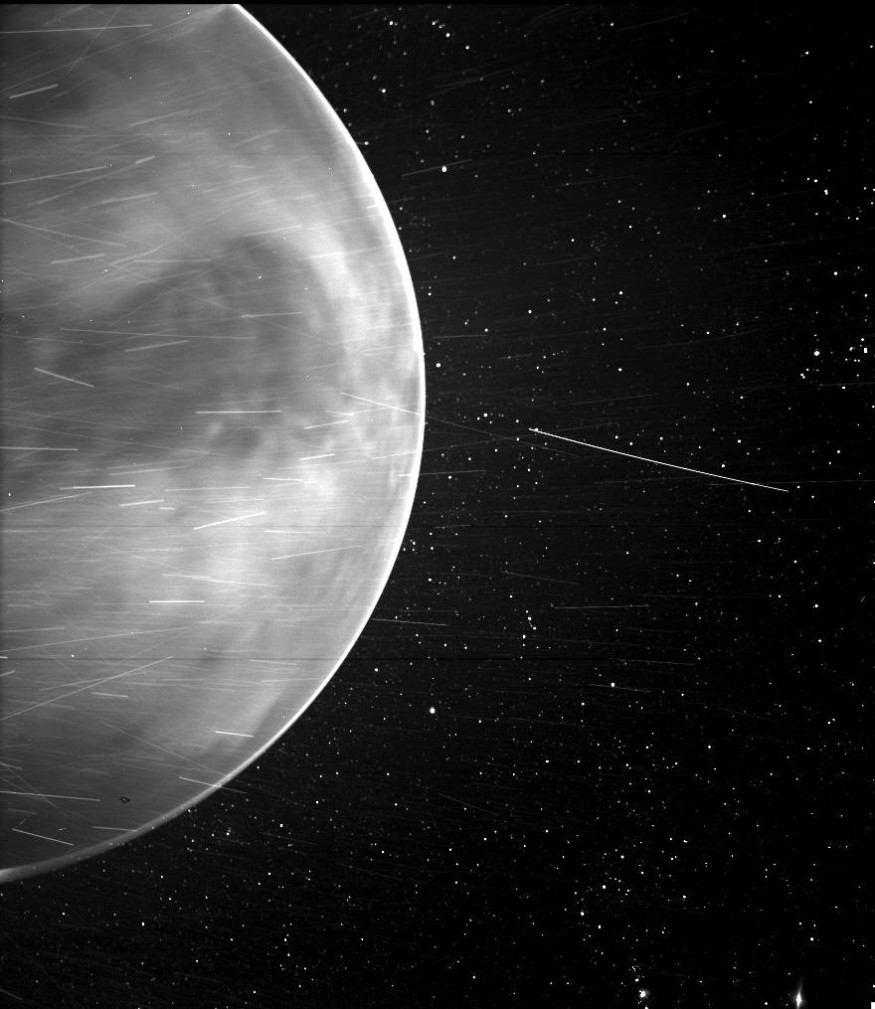NASA shares an official, stunning image of Venus, captured by a spacecraft they sent out to observe the Sun. Recent revelation debunks what was circulating online that claims it had the closest image of the planet.

According to the space agency, Parker Solar Probe shows that our close neighbor is glowing brilliantly, as seen from the official photos that the engineers took.
NASA launched the car-sized spacecraft in August 2018 as the first special mission to get close to the Sun. The agency hopes the probe could help astronomers understand solar wind and electromagnetic storms that can create havoc on the planet by taking out power grids.
The probe would travel seven times through Venus, using its gravity to get closer to the Sun. If it does, it will show knowledge about certain things just outside of the Sun.
Here's What This Viral Photo Claims
The acquired pictures have recently circulated on Facebook and Twitter. The article had a deceptive caption claiming that the images were "the only clear photo ever taken from the surface of Venus by Soviet spacecraft Venera 13."
Although the photo was taken officially by Venera 13, an American researcher told AFP that he enhanced a monochrome Venus image taken by Venera 13. He said other netizens had colorized the photo afterward.
This is from Venera-14. Here is the image I made from Venera-13. pic.twitter.com/28PJzd7b4a
— Donald Mitchell (@DonaldM38768041) January 27, 2021
Venera 13 was a space probe from the Soviet Union that was sent to Venus on October 30, 1981. It was the first one to send back photographs of the surface of Venus in color. On Google, a reverse image search found a monochrome version of the image that was released here.
To create the "perspective image." American researcher Don P. Mitchell said he combined raw image data from the Soviet space probe sent to Venus using image editing tools.
In addition, Mitchell said that the colorized version may have been incorrect, although beautiful and creepy, because it is difficult to tell the color of the sky when the clouds on the earth block out blue light.
However, photographs of the surface of Venus are rare, especially because it is challenging to land a rover in the region and allow it to remain on the ground for more than a few hours at a time. According to Ladbible, the planet had an intensely hot atmosphere.
ALSO READ : NASA Parker Solar Probe Spacecraft Will Finally Go the Sun To Take a Photo of Six Planets
Here's What Venus Officially Look Like
According to NASA, Parker Solar Probe took an incredible picture of Venus on one such flyby last Jul. 11, 2020. It helped researchers discover something unexpected about the earth.
#ParkerSolarProbe captured this stunning view of Venus during its close flyby of the planet in July 2020. The image shows a bright rim around the planet’s edge, thought to be nightglow, and the dark shape of Aphrodite Terra, a highland on Venus' surface. https://t.co/ProKV6S8Hu pic.twitter.com/VEhHcird7M
— NASA Sun & Space (@NASASun) February 24, 2021
When scientists analyzed the shot, taken from 7,700 miles away from the night side of Venus using WISPR, they were shocked to see that Parker Solar Probe had caught more than they thought.
According to CNet, the bright rim along the outside of the earth appears to be what is called the night glow, which exists as the oxygen atoms in the atmosphere recombine and give off light like they do when they are on the night side of the planet.
Angelos Vourlidas, the WISPR project scientist from the Johns Hopkins Applied Physics Laboratory, said in a statement that they expected to see clouds. Still, the camera gazed right through to the surface.
Scientists went back to check how vulnerable the system was to infrared radiation. If the equipment is capable of seeing near-infrared wavelengths, as it seems, then it may be much more useful than anticipated, enabling scientists to research dust around the Sun and surrounding solar systems.
While you may not see extra wavelengths your naked eye, the official photos can reflect a whole new way of seeing Venus.
This week, the probe went past Venus again, and researchers are expecting to process the data by the end of April.
RELATED ARTICLE : NASA will Send the Parker Probe Into the Sun's Corona
Check out more news and information on Space on Science Times.
© 2025 ScienceTimes.com All rights reserved. Do not reproduce without permission. The window to the world of Science Times.











